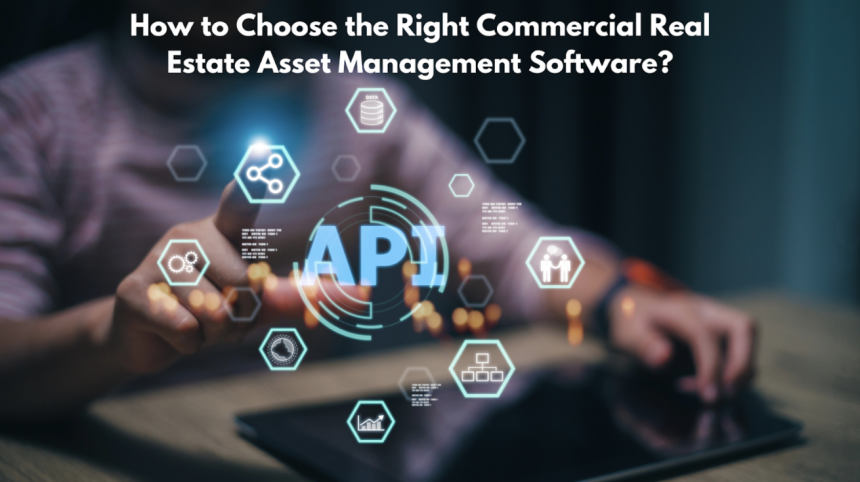Selecting the right commercial real estate asset management software is essential for enhancing the efficiency, security, and profitability of your real estate operations. Selecting the ideal commercial real estate asset management software is a strategic choice that significantly impacts operational efficiency and financial health.
In today’s market, where the scale of real estate operations can vary, the right software acts as the key to property management. This blog outlines the critical steps and considerations to help you make an informed decision. The aim is to equip you with the knowledge to make an informed decision that aligns with your business goals and maximizes your return on investment.
Identify Your Needs and Requirements
First, clarify the types of properties you manage – whether they’re commercial, residential, or industrial. Each type requires different management approaches, and your software should cater to the specific nuances of your portfolio. In North America, approximately 68% of property managers utilize technology to manage these diverse property types efficiently, indicating a significant trend toward digital management solutions.
List down the daily tasks that consume a bulk of your time and could be automated by the software. Common tasks include lease management, maintenance scheduling, tenant communications, and financial operations. Automating these tasks can save property managers their time which allows them to focus on strategic growth and tenant satisfaction.
Beyond general management, determine the critical functionalities that your business cannot do without. This might include detailed financial reporting, real-time data analytics, or integrated communication tools. Identifying these key functionalities will help you choose software that enhances your operational efficiency and addresses your specific management challenges.
By clearly identifying your needs and requirements upfront, you ensure that the software you choose can handle your management tasks and help simplify your operations. This method optimizes your current management capacity and prepares you for future challenges and opportunities in the real estate market.
Key Features to Consider in Commercial Real Estate Asset Management Software
Before selecting a commercial real estate asset management software, it’s essential to thoroughly assess your operational needs and the specific requirements of your property portfolio.
Choosing software with the right features is important:
- Task Management: Look for features that simplify daily operations like rent calculations and lease renewals, which can enhance productivity.
- Financial Operations: Ensure the software provides comprehensive analytics to track and manage revenue and expenses effectively, as data-driven decisions can boost productivity.
- Communication Management: Look for features that facilitate easy communication, such as in-app messaging, email integration, and automated notifications, ensuring that all parties stay informed and responsive.
- Risk Management: The best asset management software includes tools to identify, analyze, and mitigate risks associated with property management. This includes features that help you potential issues and take preventive measures to avoid setbacks.
Evaluate Software Scalability and Flexibility
As your property management business expands, the software you use should be able to grow and adapt alongside it. Scalability is critical to accommodate an increasing number of properties or more complex portfolios without a loss in performance. When evaluating potential software, consider whether it can handle a greater workload and more complex data sets as your business evolves.
Also, assess the flexibility of the software: Does it allow for customizations that align with your unique business practices? Software that is both scalable and flexible ensures that as your business needs change, your software can change with them, providing a long-term solution that supports continuous growth.
Consider Security and Compliance Features
In the real estate management industry, securing sensitive data and ensuring compliance with legal standards are paramount. Choose software that offers strong security protocols to safeguard tenant and transaction data from unauthorized access.
Compliance with regulations such as the International Financial Reporting Standards (IFRS), Generally Accepted Accounting Principles (GAAP), and governmental regulations like GASB for public entities is essential to avoid legal repercussions and fines. A secure and compliant software not only protects your business from financial and reputational harm but also instills trust among your stakeholders.
The Importance of Customer Support in Real Estate Software Selection
Choosing software with excellent customer support can significantly enhance your user experience and operational efficiency. Ensure that the software provider offers comprehensive support through multiple channels such as phone, email, and live chat, ideally available 24/7. This support is invaluable for resolving issues quickly, reducing downtime, and assisting with the onboarding process.
Additionally, some vendors provide dedicated account managers, which can be a major advantage for personalized service and support. Effective customer service improves overall satisfaction and helps ensure that any software issues do not hinder your day-to-day operations.
The Value of Software Demonstrations and Trials
Exploring software through demonstrations and trial periods is a standard procedure in the selection process. These opportunities allow you to witness firsthand how the software functions in real-world scenarios, providing insight into its usability, feature set, and compatibility with your existing operations.
Demonstrations help you visualize the software’s impact on your daily tasks, while trial periods offer a hands-on experience to test its effectiveness and efficiency. Utilizing demos and trials helps mitigate the risk of investing in a system that doesn’t meet your expectations or fit your business needs, ensuring that your final decision is well-informed.
Financial Considerations When Choosing Real Estate Management Software
The cost of commercial real estate asset management software is a significant factor in your decision-making process. It is important to carefully evaluate the pricing structures of different software options to ensure they align with your budget constraints and offer good value for money.
Consider not only the initial purchase price but also ongoing costs such as updates, support, and additional services. Analyzing the return on investment (ROI) is also critical; a higher upfront cost might be justifiable if the software significantly increases operational efficiency, reduces costs, or improves revenue streams. Transparent pricing models are preferable as they prevent unexpected expenses and aid in financial planning.
Utilizing User Reviews in Your Decision Process
User reviews are invaluable resources when assessing potential software. They provide insights into the software’s reliability, performance, and the quality of customer service provided by the vendor. Reviews from current users can highlight potential issues and real-world performance while demonstrating how the software has been implemented successfully by other businesses similar to yours.
Both reviews help gauge the software’s effectiveness and can reveal how it handles the complexities of commercial real estate management, ultimately guiding you to a more informed purchase decision.
FAQs
What are the features of commercial real estate management software?
Automation of key tasks like lease management and financial reporting is important for enhancing efficiency and accuracy.
How do I ensure the software fits my business size and type?
Evaluate the software’s scalability and ensure it offers customization options to tailor the platform to your specific business needs.
What should I consider in terms of integration?
Look for software that can integrate smoothly with your existing systems to ensure seamless operations and data consistency.
Conclusion
Choosing the right commercial real estate asset management software involves careful consideration of your current needs and future growth. By focusing on essential features, you can select a solution that meets and improves your property management operations.
Lynn Martelli is an editor at Readability. She received her MFA in Creative Writing from Antioch University and has worked as an editor for over 10 years. Lynn has edited a wide variety of books, including fiction, non-fiction, memoirs, and more. In her free time, Lynn enjoys reading, writing, and spending time with her family and friends.















